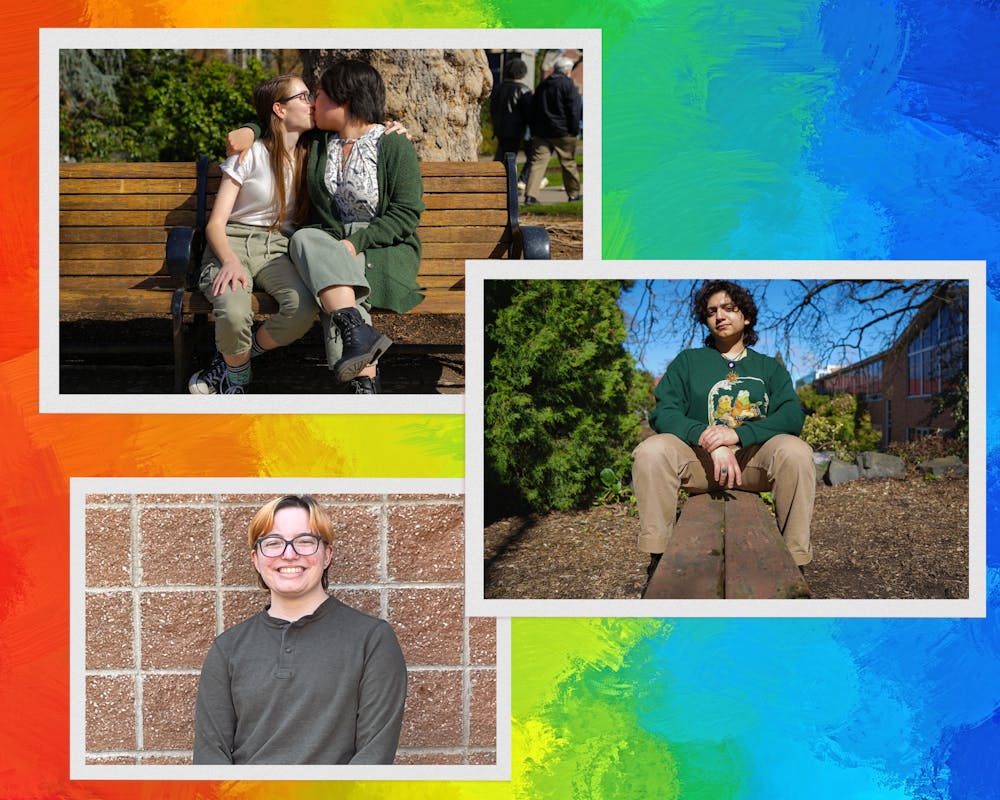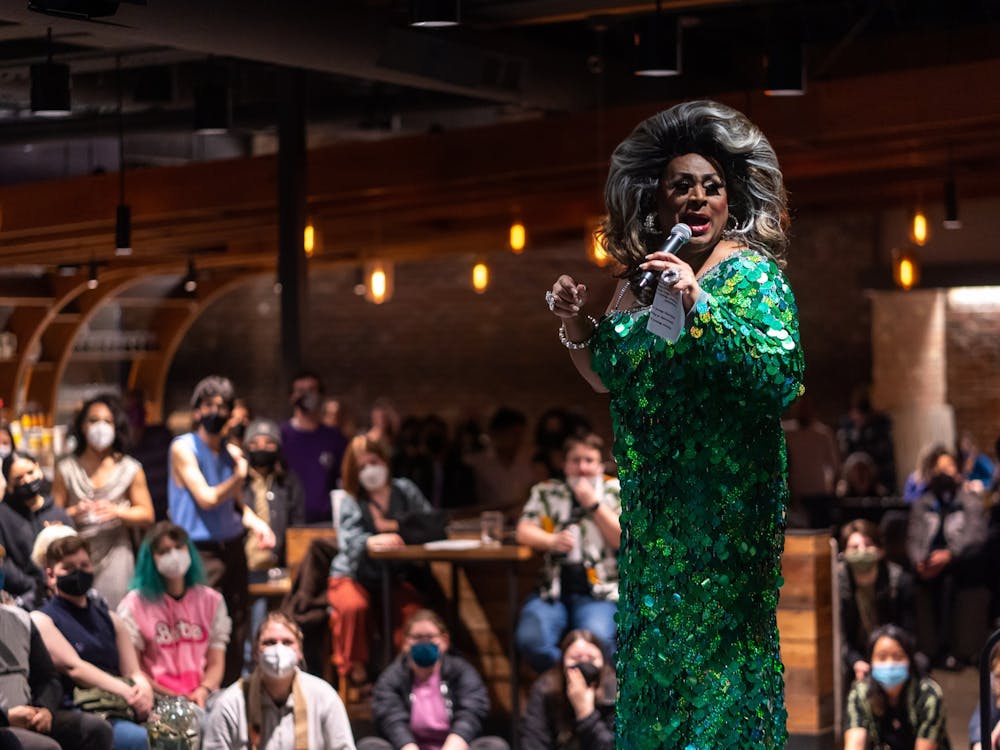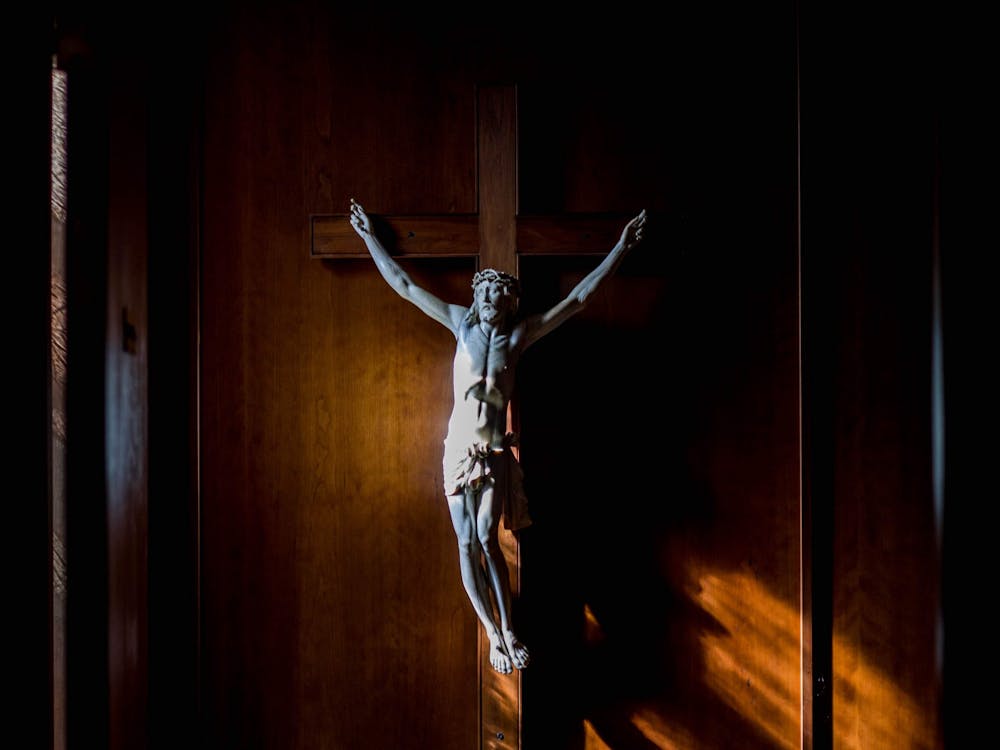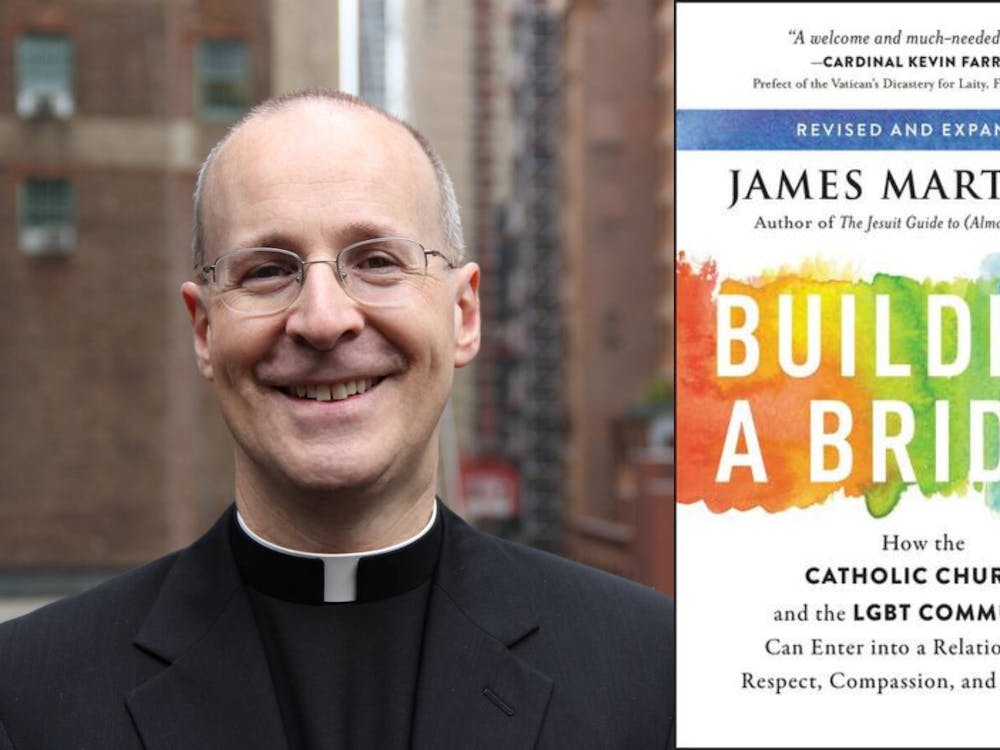Attending a Catholic university like UP can be scary for students who belong to the LGBTQ+ community. Oftentimes facing higher rates of discrimination from students and school policies, it is understandable why prospective queer students would want to attend a school with an inclusive and supportive community.
Luckily, UP has a vibrant and resilient queer presence. Besides organizations like the Gender & Sexuality Partnership (GSP), queer students have established themselves as a long-standing active and inclusive community on campus.
In recognition of their hard work and advocacy, four queer students reflect on their lives, passions and ambitions to make the world a more inclusive and equitable place. These are their stories.
Cami Villanueva ‘23 (she/her) and Hayley DeArmond ‘23 (she/her)
Oftentimes being seen holding hands around campus, Cami Villanueva and Hayley DeArmond are a prime example of resilience and optimism for the future. Having met online their freshman year during the 2020-2021 school year, Villanueva and DeArmond are no strangers to adapting and persisting through less-than-ideal scenarios.
“I first started noticing her on Zoom because I always knew Hayley had something to say,” Villanueva said. “I knew I wanted to be her friend once we got out of COVID, and after that, I was really drawn to her goofiness.”
Besides majoring in secondary education, Villanueva and DeArmond share many similar interests. The couple, especially DeArmond, have taken a massive interest in film. Along with frequently watching movies, DeArmond has created multiple short films — going as far as submitting one of her works to an independent film festival.
“Hayley’s such a huge cinephile,” Villanueva said. “When we were just friends, before we started dating, all she would talk about was movies. It was absolutely hilarious.”
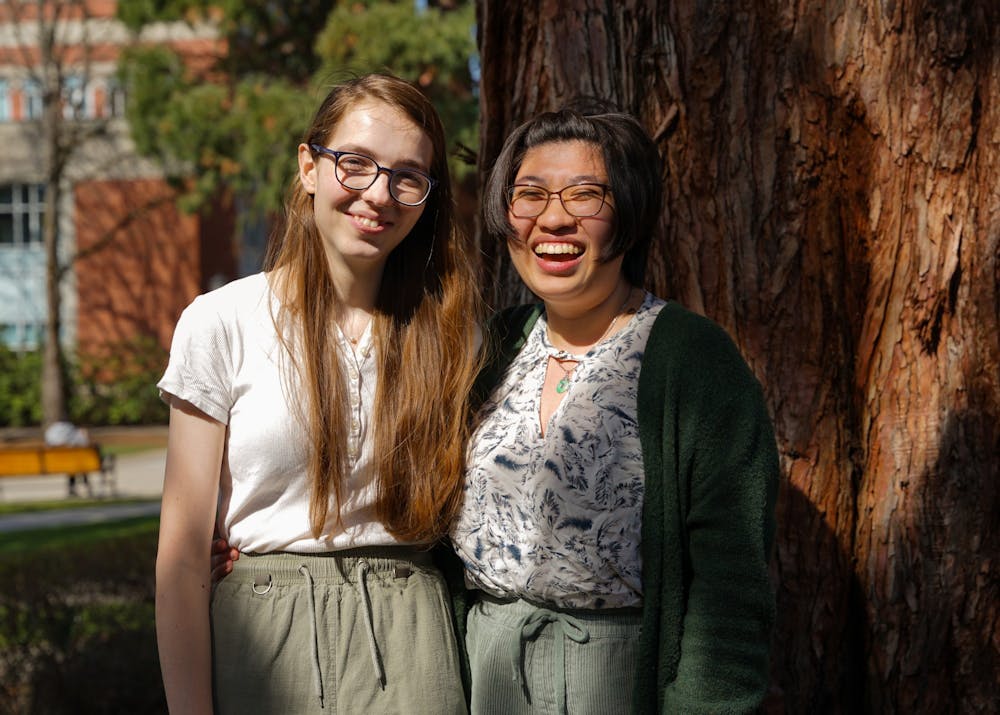
Villanueva and DeArmond play to each other’s creative strengths. With Villanueva’s interest in creative writing and DeArmond’s passion for filmmaking, the couple frequently share their creative works with one another and bounce ideas off each other. DeArmond’s love for filmmaking has even led her to adapting Villanueva’s stories into their own short films.
“Having a creative confidant is really nice,” DeArmond said. “If I hear a story from Cami I really get energized by it, and Cami’s always really supportive of my projects.”
Growing up as queer women has also influenced DeArmond and Villanueva’s goals for their future in secondary education. Their experiences of marginalization have encouraged them to become empathetic and supportive teachers to students of all backgrounds.
“If students are struggling mentally because of systemic pressures or familial pressures, then they’re not going to be able to work,” DeArmond said. “There’s different identities that students come with that require support within the classroom.”
To DeArmond, the drive to support students of all backgrounds stems from personal experience. Having grown up in North Carolina as a young trans student during HB 2 (a law that prevented trans students from using bathrooms and locker rooms that aligned with their gender identities), DeArmond deeply understands the effects of discriminatory statutes against certain students.
“There were a lot of pressures that teachers didn’t want to acknowledge,” DeArmond said. “There was at least one queer teacher I knew, and even he couldn’t talk about it.”
Even in college, DeArmond has faced issues of feeling supported by the school. Many UP online systems have deadnamed her. When trying to get the issue resolved, DeArmond has faced long wait times to get her name correctly displayed on UP’s online platforms.
Deadnaming is an all-too common experience among many trans and non-binary students in universities. The act of deadnaming often leaves trans and non-binary students vulnerable to discomfort, invalidation and at worst, discrimination from students and school administrations.
However, both Villanueva and DeArmond have found support and inspiration from inclusive members of the UP community, which they wish to pay forward in the future. As students enrolled in the 3 + 1 Pathway through the School of Education, Villanueva and DeArmond will earn their masters in education next year. Using their extensive knowledge in the field and life experiences, the couple hope to foster inclusive and transformative spaces in their own classrooms.
“Teaching is another form of activism,” Villanueva said. “It’s really fulfilling to be able to help a student and know that they’re going to be something greater.”
Jesper Machi ‘24 (they/he)
Hailing from Pleasonton, CA, Jesper Machi has always had a deep love for nature. As a kid, they would frequently watch environmental documentaries with their mom and constantly spent time outdoors and in national parks.
“I had my favorite trees at the park and I had names for them,” Machi said. “I would give them hugs — they were like my little tree friends.”
Machi’s love of nature has pushed them into pursuing the field of environmental science. Having developed a soft spot for botany — especially moss — Machi hopes to use their love of nature and plants to pursue a career dedicated to serving the environment.
Besides their love for nature, Machi also has a lot of love and care for the queer community at UP. As the vice-president of GSP, Machi knows the importance of establishing a well-connected community of queer students on campus. Through their leadership position, Machi hopes to foster queer spaces that have provided them the same sense of welcome and acceptance at UP.

“There’s this idea that queer people always flock together and find each other, and I feel like that’s true,” Machi said. “It’s like a found family of friends who just understand me and my identity without question.”
Having grown up Catholic, Machi understands many obstacles that queer students face in finding acceptance among religious communities. These experiences have led them to help start multiple community-building initiatives through GSP. One such tradition is the monthly brunch, which started as a way to help queer students find community over a meal.
“As a freshman, going to a Catholic school, going into the dining hall and getting food was very scary,” Machi said. “So I had the idea to start brunches. It’s grown and evolved and now we have catering.”
Besides coordinating events that build community among UP’s queer students, Machi also helps lead on-campus educational initiatives — called inQUEERies— about various issues surrounding queerness and queer identities. As an asexual and non-binary person, Machi has had to navigate situations in which they educate both queer and non-queer people about their identities.
“There’s not a lot of media representation about asexuality,” Machi said. “Not a lot of people identify as asexual because it’s not really well-known. I think that more people would identify with that identity if there was more information on it.”
For anyone confused or struggling to understand non-binary identities and pronouns, Machi encourages independent research rather than expecting queer strangers to randomly explain the intricacies of diverse queer identities.
“There’s definitely guides out there,” Machi said. “Practicing is a good thing. And if you mess up, don’t make a big deal about it.”
Machi empathizes with any queer students anxious to attend UP. They encourage queer students to reach out to GSP for any questions and support they might need.
“Prospective students reach out to GSP and ask us what it’s like being queer or trans at the school,” Machi said. “There are always people that have your back — other students, faculty, family — there’s always people who are willing to help you out.”
To queer people still discovering their sense of identity, Machi encourages an open mind and exploration of identities that feel the most comfortable.
“Sometimes it feels like you have everything figured out, and you definitely don’t,” Machi said. “It took me years of finding different labels and identities that resonated with me. It’s okay if those change.”
Alex Silva ‘25 (he/him)
When he is not hiking or appreciating the beauty of nature around him, you can find Alex Silva posting educational content on social media. In 2020, Silva co-founded EcoTok, a TikTok collective of 18 people. Their content focuses on educating and inspiring people on global environmental issues that has amassed more than one hundred thousand followers and over 2 million likes.
Having partnered with organizations such as TED and other media organizations you could say Silva has become an influential activist in his own right.
Using his love for people, social justice and the environment, Silva has used EcoTok as a way to discuss and highlight how issues of social justice intersect with environmental issues. He hopes that his platform can help audiences connect environmental issues with issues of inequity and marginalization among different vulnerable communities.
“We did a collaboration on the importance of queer people in the environmental movement,” Silva said. “A lot of queer people are homeless, and homeless people in general have to deal with all kinds of environmental hazards.”
Outside of social media, Silva continues his activism on-campus. As the vice-president of Ecology Club, Silva is committed to promoting eco-friendly practices among the UP community.
“I do a lot of communication online,” Silva said. “We try to promote sustainability and then make sure that it’s intersectional and accessible to as many people as possible.
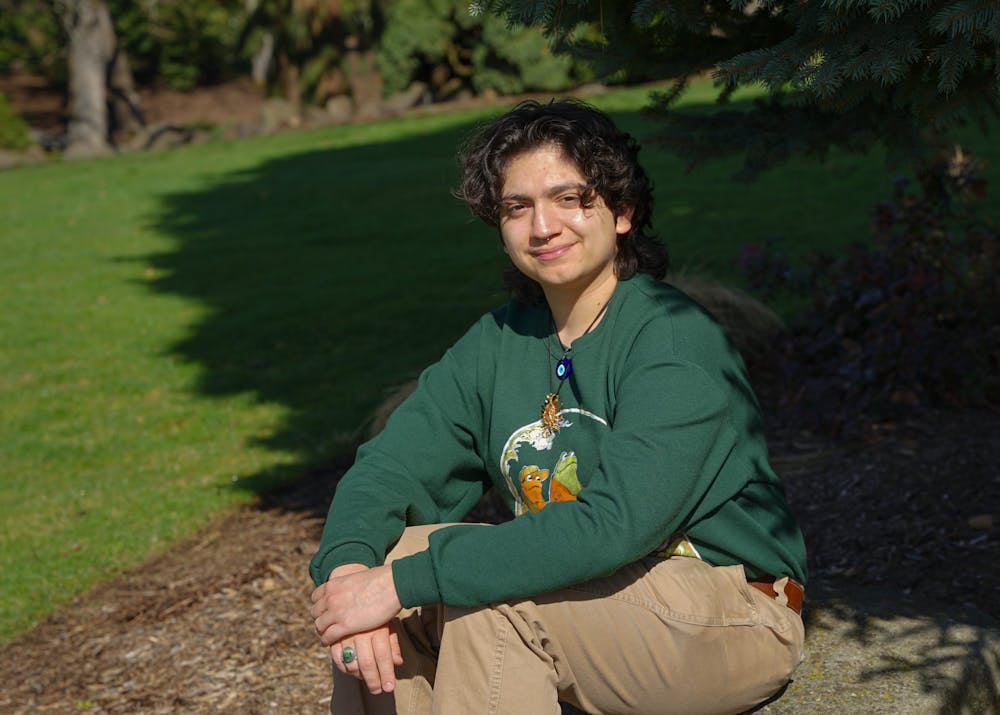
Silva’s love for the environment and dedication to activism comes from personal experience. Having been raised in a Latino family in Las Vegas, Silva has seen firsthand the environmental hazards that marginalized people are forced to experience. He hopes to inspire communities like the ones he grew up in to take action against such discriminatory practices.
“Where I grew up, people knew that it was not the healthiest place to live, but they didn’t know why,” Silva said. “I advocate for those communities and make sure people fight against it as much as they can.”
Growing up in a Catholic family, Silva has had a long journey accepting his identity. As he navigated high school, Silva’s acceptance from his queer friends helped him find pride and acceptance. It was through self-acceptance and persistence that Silva’s family has become more accepting of his queerness.
“Before I realized I was queer, there was a lot of negative talk around the gay community and trans people — it always felt wrong to me,” Silva said. “Accepting myself was the most important thing. Expressing myself and learning to advocate for myself while also leaving a bit of space for them to learn.”
Despite feeling unaccepted by religious family members growing up, Silva is still a spiritual person. To Silva, religion and queerness are inherently compatible regardless of long-standing discriminatory perspectives from religious institutions.
“I always thought that people were wrong, rather than the religion is wrong,” Silva said.
To any queer people struggling with balancing acceptance of their identities with their personal faith, Silva emphasizes prioritizing self-acceptance, pride and love in one’s self.
“Love for yourself is the most important thing of all,” Silva said. “Rather than someone else telling you that you can be loved.”
Carlos Moreno-Vega is a reporter for The Beacon. He can be reached at morenove23@up.edu.



